Web Development Agency Quote Template
Present professional quotes using the Web Development Agency Quote Template – outline services, pricing, and terms efficiently.
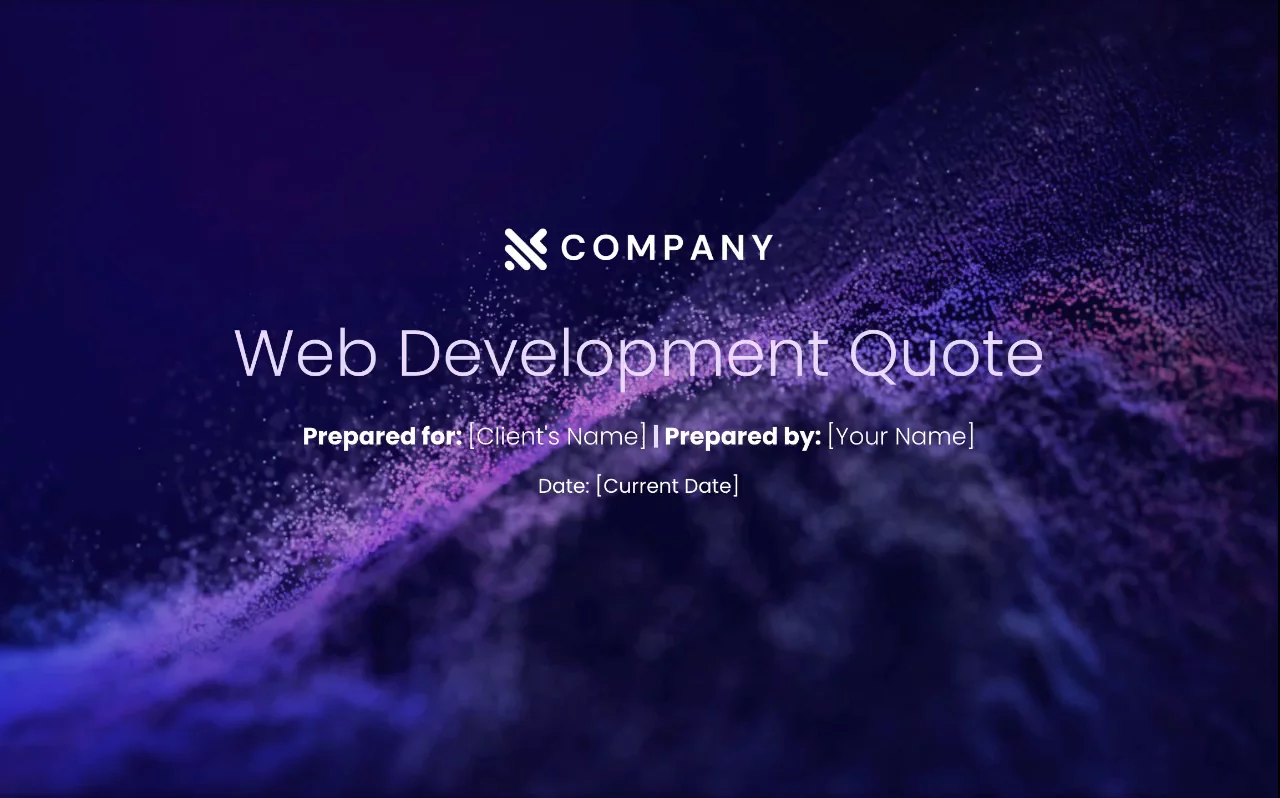
About this template
Present professional quotes to clients with our Web Development Agency Quote Template. Outlining services, pricing, and terms, this template helps you win more web development projects and make a lasting impression.
Equip your agency with a user-friendly template that streamlines the quoting process and instills confidence in potential clients. Our Web Development Agency Quote Template ensures clear communication and sets the stage for successful collaborations.
What's included?
- Introduction
- Project goals
- Success metrics
- Investment
- Scope of work
- Timeline
- Contact
Included in our template
Visually impressive cover page
First impressions matter—especially in web development. This template opens with a stunning, professionally designed cover page that immediately communicates your agency’s design sensibility. The layout is modern, mobile-friendly, and formatted to showcase your branding, project title, and client name. Just update the placeholder text and imagery, and you’re ready to impress.
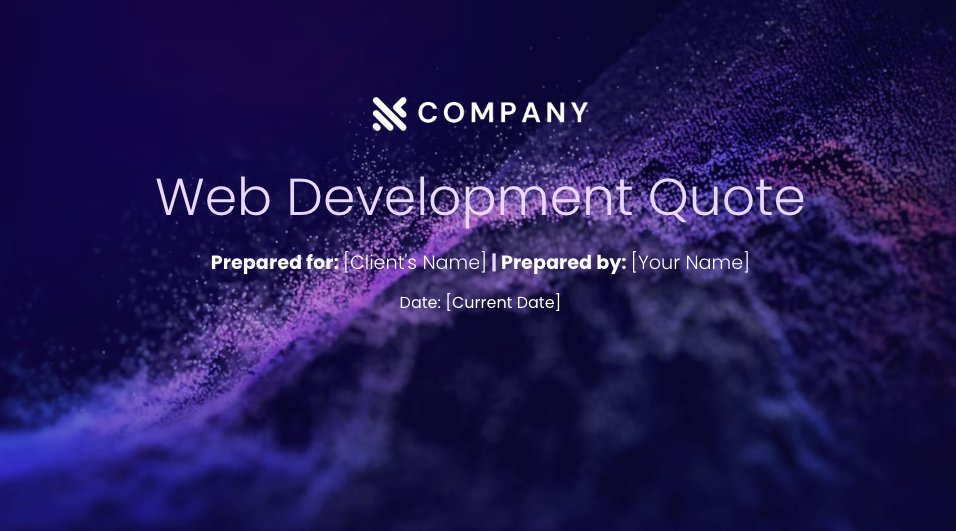
Project goals and success criteria
Our website development quotation helps you clearly define what success looks like—before the project even begins. Pre-written content in this section is structured to capture common client goals like improving site performance, driving conversions, or launching on schedule. You can easily customize these fields to reflect your client’s unique needs. By aligning on measurable outcomes from the start, you show your agency is results-driven and strategically minded.
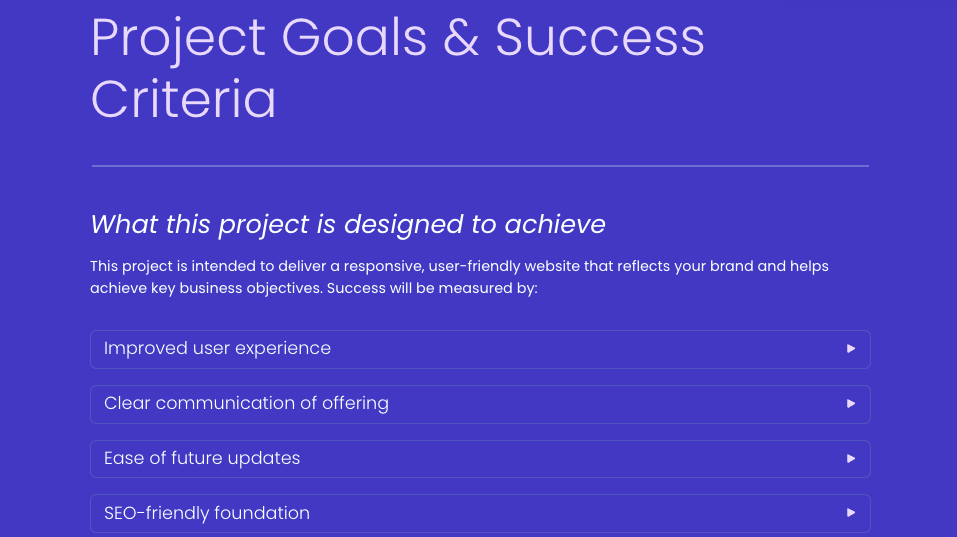
Quote
The web design quote section is where transparency meets professionalism. It’s pre-filled with a customizable breakdown of services, pricing structures, and optional line items—so you can tailor it to fit your exact project scope. Whether you quote by deliverable, design phase, or development sprint, the format helps clients understand both the cost and the value of what you’re offering. Qwilr’s dynamic quote block also allows for interactive elements if needed, helping clients make decisions faster.
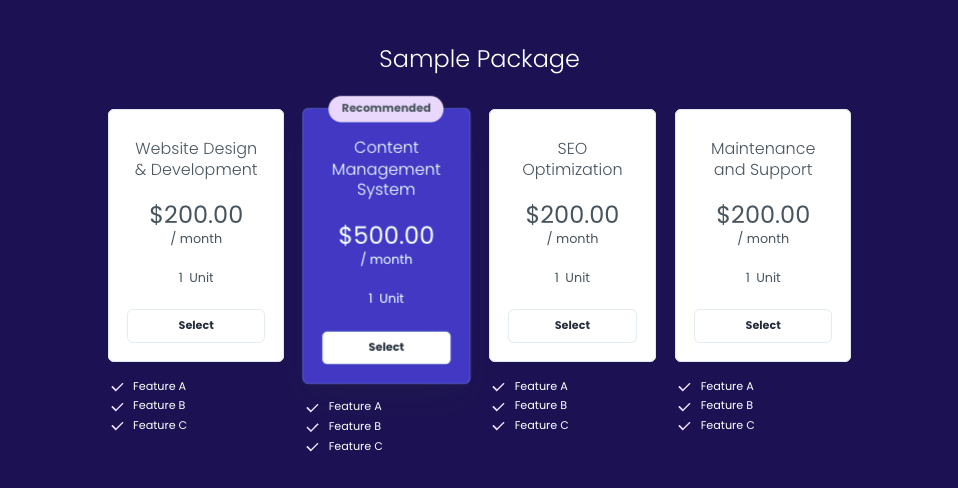
Scope of work
This section outlines exactly what your agency will deliver—and just as importantly, what’s out of scope. It comes with editable descriptions for typical web development phases like discovery, wireframing, visual design, CMS setup, and QA testing. You can quickly modify the content to match the specific project, ensuring expectations are clear and reducing the risk of scope creep. The language is already written in a client-friendly tone that makes even technical deliverables feel approachable.
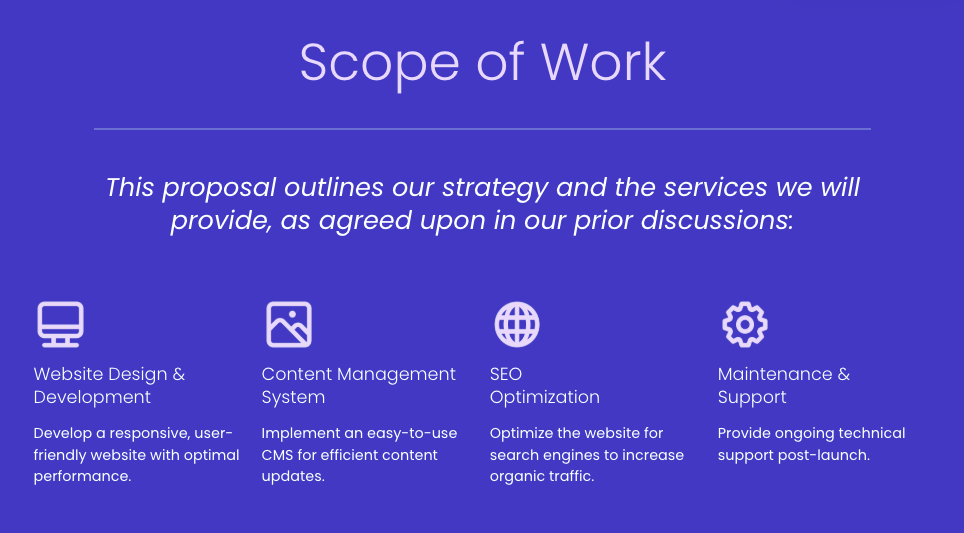
Timeline & milestones
Clients want to know when things will happen, and Qwilr’s website quote template shows them you have a plan. You can easily adjust dates and details to reflect your project’s schedule while keeping the visual format intact. It’s designed to show progress at a glance and helps set realistic expectations about delivery from day one.
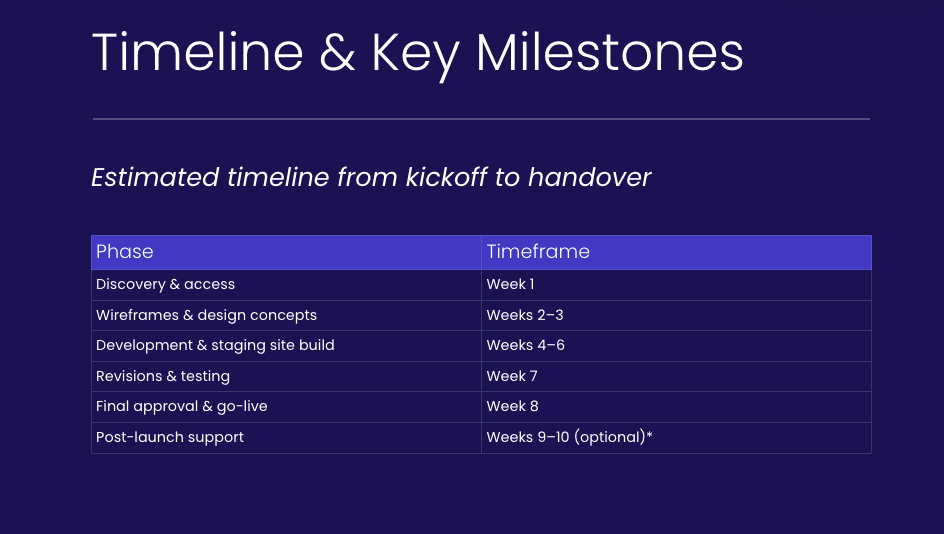
Why Qwilr?
Design interactive proposals
Impress buyers with interactive proposals that stand out. Qwilr’s drag-and-drop editor makes it easy to create on-brand, stunning collateral — no design skills needed. Add videos, dynamic pricing, and ROI calculators to deliver a unique experience, while automated brand customizations ensure every proposal looks professional.
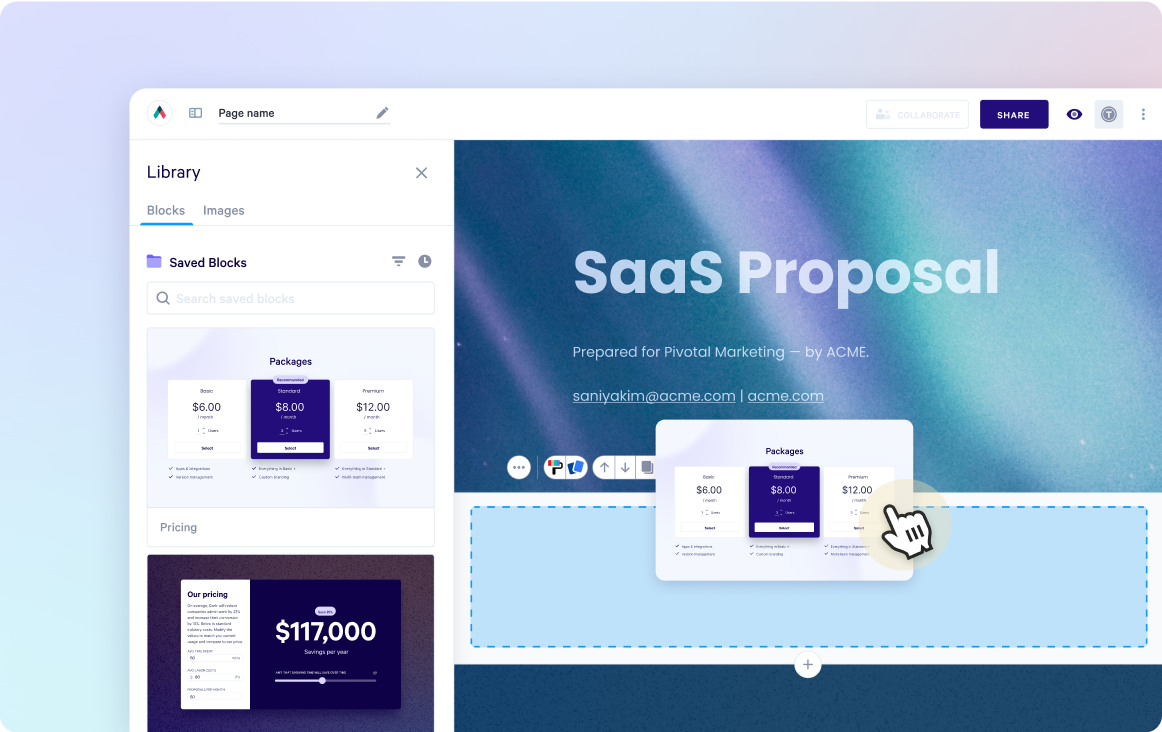
Built-in e-sign functionality
Combine stunning proposals, plain-text agreements, and secure e-signatures in one tool. Add print-friendly agreements alongside dynamic content and collect legally compliant e-signatures with ease. Track progress, capture multiple signatures, and close deals faster with Qwilr’s integrated e-sign functionality.
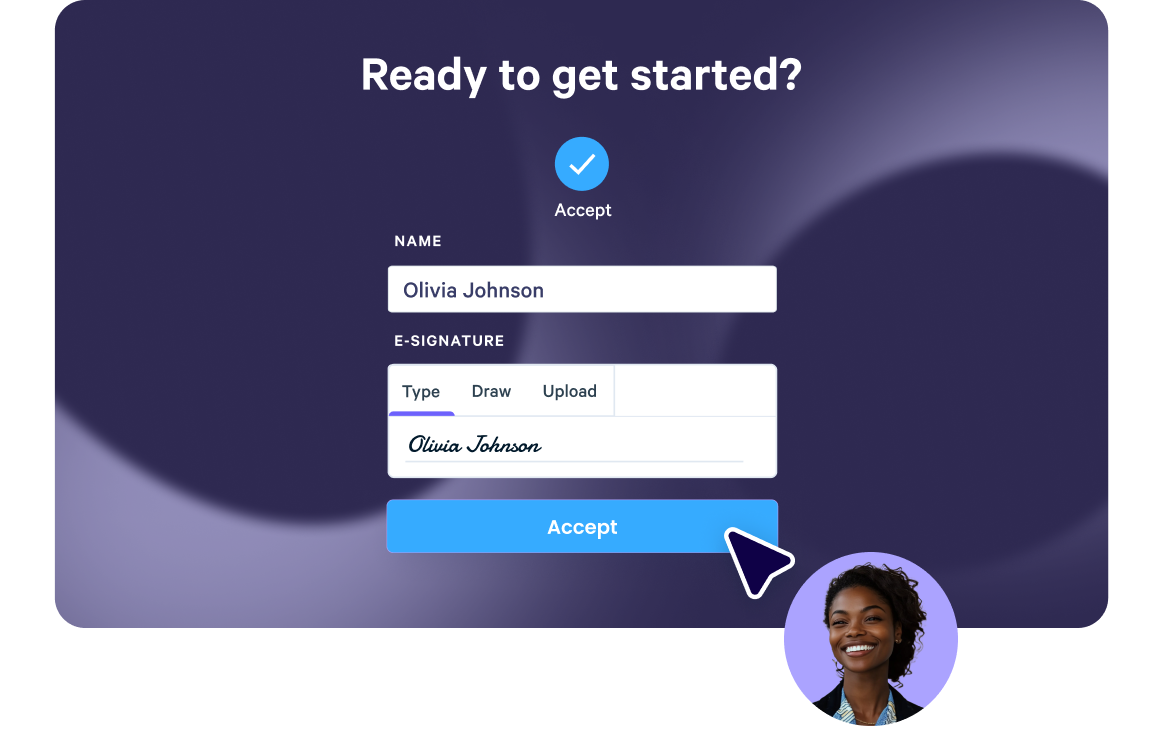
Real-time proposal analytics
Qwilr’s analytics provide full visibility into buyer engagement. Track when proposals are opened, signed, or shared, and get instant notifications for key buyer activities. See what buyers click on, how they engage, and prioritize follow-ups based on real-time insights—all designed to help close deals faster.
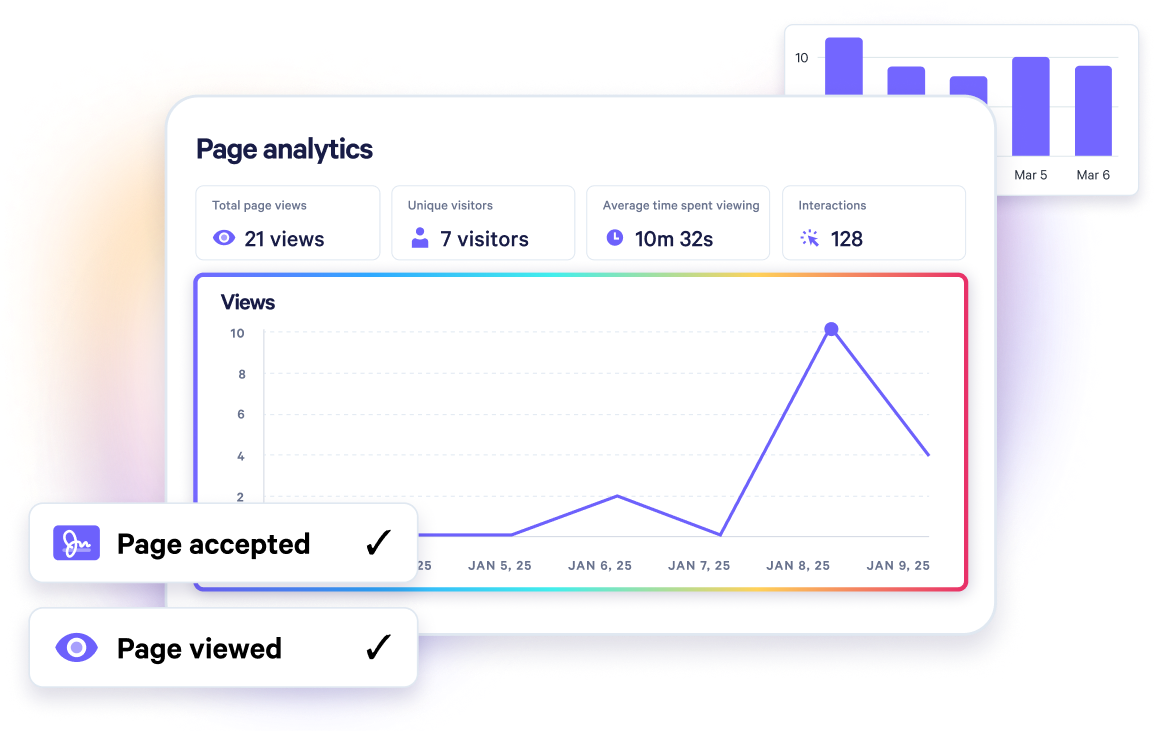
Templates for every use case
Explore templates for sales, marketing, customer success, sales enablement and more.
Explore quote templatesFrequently asked questions
When writing a quote for web development, you need to consider the scope of work, timeline, and budget. It’s important to be as detailed as possible. Outline each step of the process along with the timeline and the cost of each phase. Additionally, ensure you include any variables that might affect the final cost, such as additional features or add-ons.
A web design quote should include an overview of the project, including the objectives, expected timeframe and scope of work. Additionally, you should include pricing, including any estimated costs for additional services. Ideally, the quote should be clear and concise, with a detailed breakdown of all the elements included in the final cost. Be sure to provide a timeline outlining important milestones for the project.
Agencies quote web projects based on the scope of work, timeline, and budget. This involves breaking down the project into small, discreet tasks and estimating how much time and resources each step will require. Agencies will then apply an hourly rate, additional expenses, such as domain names and hosting, and other potential variables to determine the final cost.
To accurately estimate the cost of a development project, agencies need to be as detailed as possible. This means breaking down each stage of the development process into smaller tasks, assigning an hourly rate, and adding any additional expenses, such as hosting, domain name registration fees, and other costs. Additionally, agencies need to be flexible and mindful of potential variables that might impact the final cost of the project.







